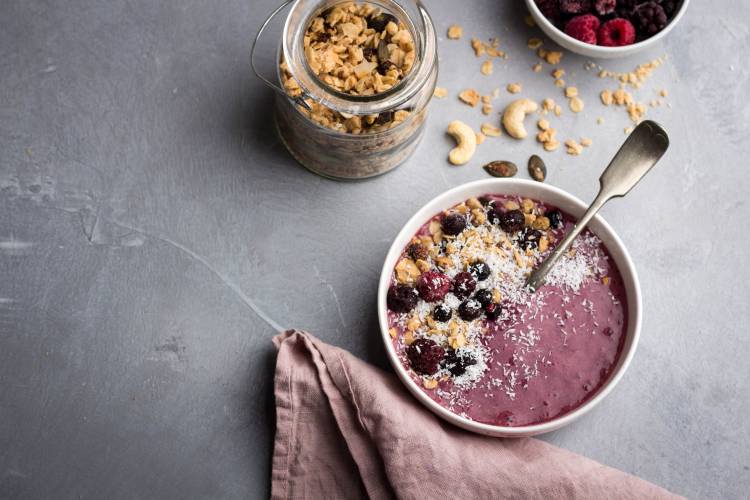There’s a long list of alternative milks on the market today and the list only seems to be getting longer. It can be confusing to know what each milk offers and what makes each of them unique, so we decided to create this definitive guide to alternative milks from almond to quinoa to help you choose the right option for you.
*Note: Nutrition information is based on a serving size of 1 cup (240mL), fortified blend. Values may vary across manufacturers.

Almond Milk
Almond milk is easily one of the most common alternative milks on the market today. It has a sweet and nutty flavor and is generally low in calories, making this a great option for those working to manage or maintain a healthy weight.
Unsweetened Almond Milk: Calories: 30 | Total Fat: 2.5g | Carbohydrates: 1g | Protein: 1g | Sugars: 0g | Calcium: 45% DV | Vitamin D: 25% DV
Cashew Milk
Cashew milk is a creamy and rich consistency much like dairy milk. In fact, this nut milk can easily replace cow’s milk in recipes in part because of their similarities.
Unsweetened Cashew Milk: Calories: 25 | Total Fat: 2g | Carbohydrates: 1g | Protein: < 1g | Sugars: 0g | Calcium: 45% DV | Vitamin D: 25% DV
Coconut Milk
Coconut milk is sometimes confused for coconut water, which is found naturally in immature green coconuts. Unlike the water, coconut milk does not occur naturally, but is a mixture of solid coconut flesh and water. This plant-based milk has a rich, creamy consistency that naturally contains several vitamins and minerals.
Unsweetened Coconut Milk: Calories: 40 | Total Fat: 4g | Saturated Fat: 3g | Carbohydrates: 1g | Protein: 0g | Sugars: 0g | Calcium: 35% DV | Vitamin D: 10% DV
Flax Milk
Flax milk is rich and creamy, like oat milk and has a diverse nutritional profile, including nutrients that aren’t as available from dairy milk. Another benefit is that it doesn’t require much water to grow flax seeds – just natural rainfall. Compared to the 1.1 gallons of water it takes to grow just one almond, growing flax seeds is much more water-efficient.
Unsweetened Flax Milk: Calories: 25 | Total Fat: 2.5g | Carbohydrates: 1g | Protein: 0g | Sugars: 0g | Calcium: 30% DV | Vitamin D 25% DV
Hemp Milk
Hemp milk is made from whole hemp seeds and has an earthy and nutty natural flavor. Its creamy consistency makes it a great plant-based alternative for dairy milk when making things such as smoothies or as a coffee creamer.
Unsweetened Hemp Milk: Calories: 60 | Total Fat: 4.5g |Carbohydrates: 0g | Protein: 3g | Sugars: 0g | Calcium: 20% DV | Vitamin D 10% DV
Oat Milk
Oat milk has exploded in popularity within the last year. It has also been heralded as an ideal milk alternative because it’s naturally free of lactose, nuts, soy and gluten – when made from certified gluten-free oats. This nondairy milk is naturally sweet with a mild flavor, making it a simple and delicious substitute for your favorite recipes.
Unsweetened Oat Milk: Calories: 90 | Total Fat: 1.5g |Carbohydrates: 19g | Protein: 2g | Sugars: 4g | Dietary Fiber: 2g | Calcium: 25% DV | Vitamin D 20% DV
Quinoa Milk
Quinoa milk is a rarer alternative milk that you may not be able to find as easily as other options. Regardless, this option is generally gluten-free and vegan, making it a great option for those with a gluten sensitivity. If you don’t enjoy the taste of cooked quinoa, however, this may not be for you due to the distinct quinoa flavor.
Unsweetened Quinoa Milk: Calories: 40 | Total Fat: 0g |Carbohydrates: 8g | Protein: 1g | Sugars: 4g | Calcium: 30% DV | Vitamin D 25% DV
Rice Milk
Rice milk is generally considered to be the least allergenic of milk alternatives because it is the least likely of all milk products to cause allergies. Additionally, rice milk is a healthy option for people who want a unique mineral and nutrient boost without consuming as much fat traditionally found in dairy milk.
Unsweetened Rice Milk: Calories: 112 | Total Fat: 2.3g |Carbohydrates: 22g | Protein: < 1g | Sugars: 13g | Dietary Fiber: < 1g | Calcium: 28% DV | Vitamin D 25%
Soymilk
Soymilk has a similar nutritional profile to dairy milk but has one main benefit: it’s lactose free. For those with a lactose sensitivity or intolerance, but who enjoy the unique benefits of dairy milk, soymilk is the best option. The only drawback to soymilk is that it can be an acquired taste for those not used to the flavor profile of alternative milks.
Unsweetened Soymilk Milk: Calories: 80 | Total Fat: 4g |Carbohydrates: 4g | Protein: 7g | Sugars: 1g | Dietary Fiber: 2g | Calcium: 15% DV | Vitamin D 15% DV
Which alternative milk is your favorite?
Tags: almond milk, alternative milk, BIOVEA, cashew milk, coconut milk, flax milk, hemp milk, nondairy milk, nut milks, oat milk, quinoa milk, rice milk, soymilk, vegan milk




Comments For 'This is Your Definitive Guide to Alternative Milks from Almond to Quinoa'